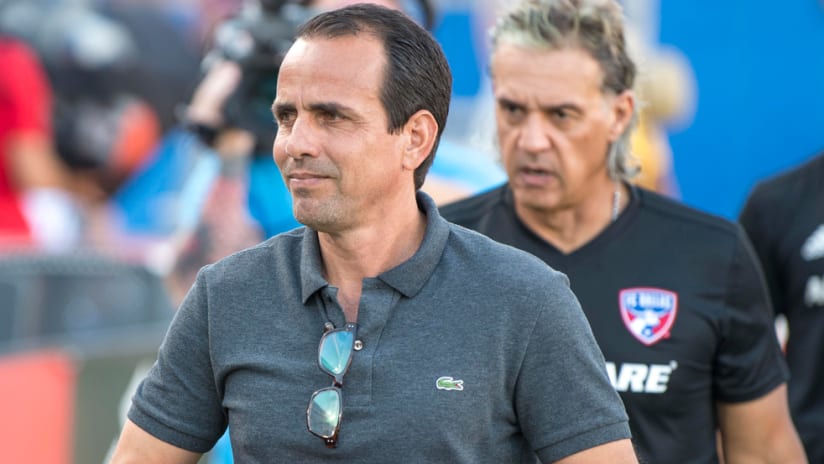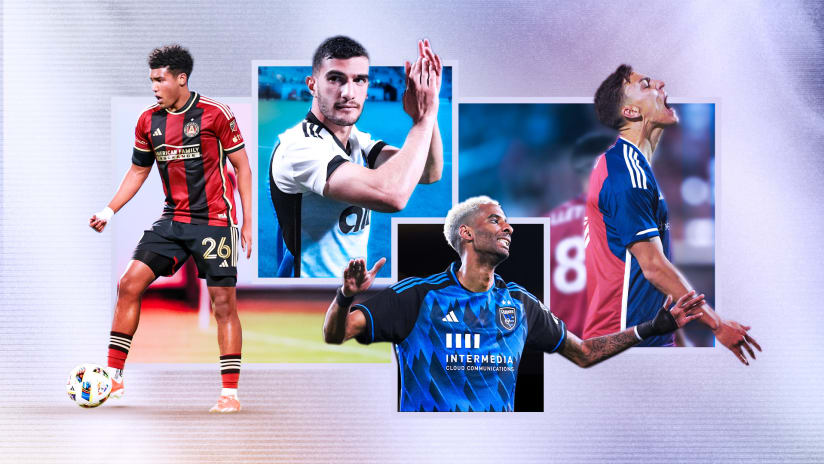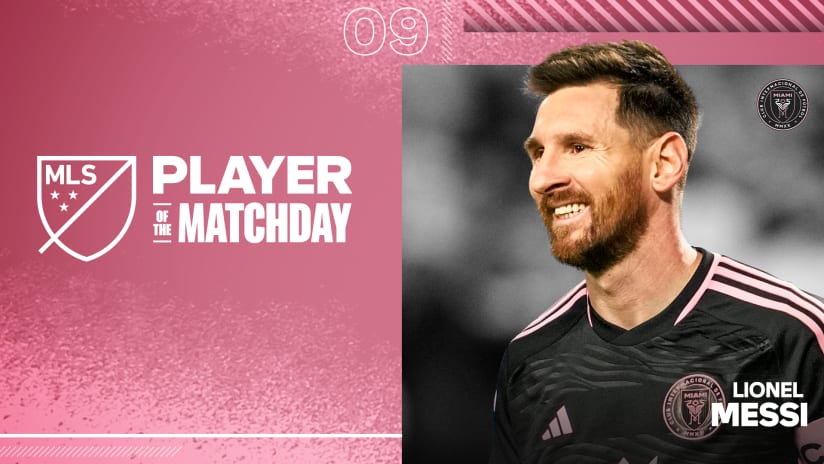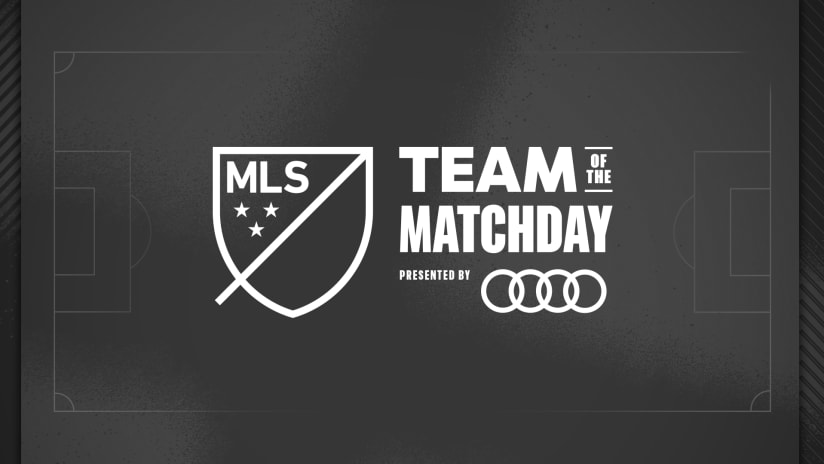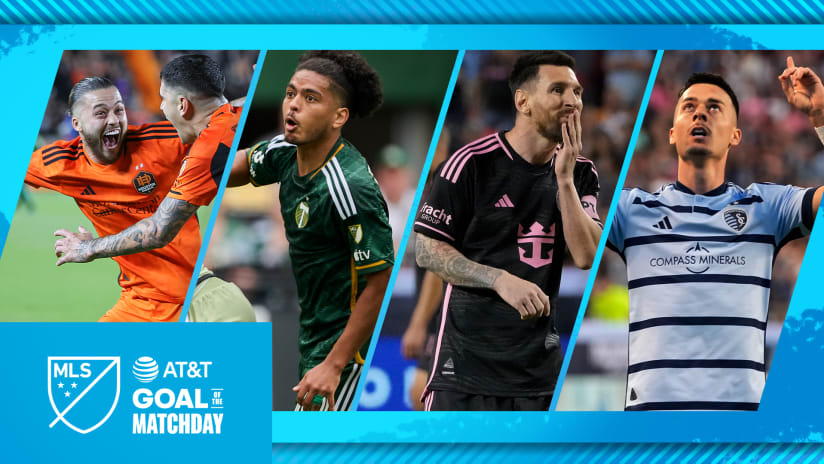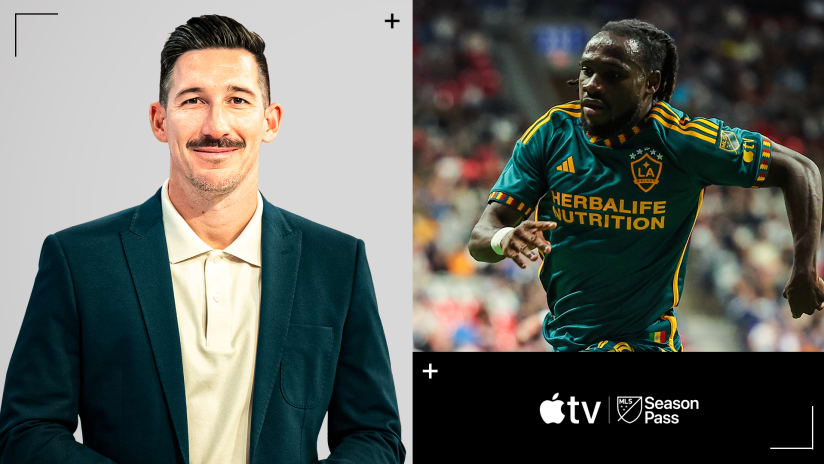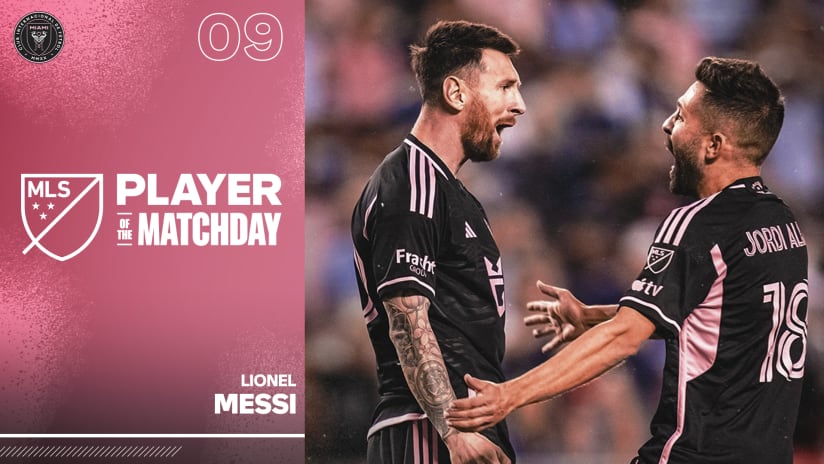They occupy first place in the Western Conference, racking up a league-best 2.0 points per game, have lost just three MLS matches in 2018, are undefeated at their Toyota Stadium home and have done it all with balanced contributions from across the roster.
Amid all this, they just sold off their most talented and influential player, playmaker Mauro “The Little Unicorn” Diaz, and sooner or later will probably do the same with Homegrown star and rising U.S. international Kellyn Acosta.
You could say things are going great for FC Dallas. But you’re unlikely to hear anyone from the club saying anything of the sort.
Not yet.
“Realistically, looking at where we are today, we’ve been in the same position in the past,” FCD technical director Fernando Clavijo told MLSsoccer.com this week, “in first place, looking down at many other teams in our division.
“We all like to be in first place, but we have to be careful because we know well that it doesn’t matter how you start, but it’s how you reach the playoffs and the shape of your team when you start playing the games in the playoffs … I think we are realistic that we still have a lot of games to go.”
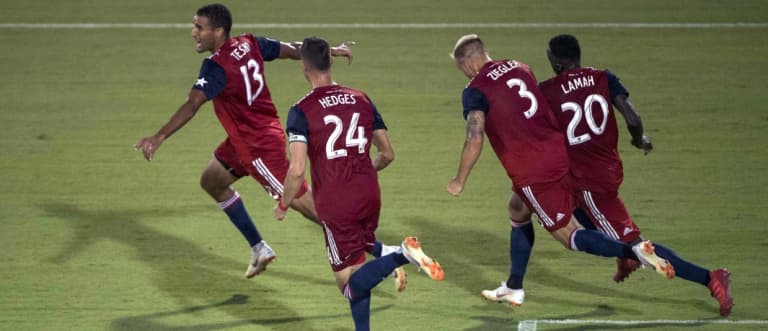
FCD celebrate a Tesho Akindele goal | USA Today Sports Images
Once bitten, twice shy, the saying goes, and FCD have been ravaged by crushing disappointment and untimely collapses more than a few times over the past several years.
A year ago they were in a position much like their current one, only to nosedive right out of the playoff places altogether with a 2-7-6 record in their final 15 games. That misery was piled atop the crushing last-second loss to Mexico’s Pachuca in the Concacaf Champions League semifinals earlier in the year.
Then there was the upset loss to Seattle in the 2016 MLS Cup Playoffs, a premature end to their Supporters’ Shield and U.S. Open Cup-winning campaign. And before that, there was the dramatic Western Conference Championship loss to eventual MLS Cup winners Portland in 2015.
“You learn sometimes with pain,” said Clavijo.
So is it really different this time in Frisco?
The North Texans were once heavily dependent on Diaz, often forced to shift to markedly different formations and tactics on the many occasions he was sidelined by injury. Yet he started only nine league games before transferring to UAE side Shabab Al-Ahli Dubai FC at the beginning of July. Players and staff – many of whom have been together for years, or rose through the club’s famed academy structure – now sound confident that no one person on the roster is irreplaceable.
“In the past we were very committed to playing with Mauro – if Mauro was not there, it was a big factor for us,” admitted Clavijo. “We didn’t want to depend so much on Mauro any more … We play different, we have different systems, we have different players, but the team keeps getting the results.”
Nor are they wedded to any particular way of racking up results. FCD have shown an ability to succeed both with and without the ball: They’d prefer to pour forward and attack opponents into oblivion, yet have at times leaned heavily on one of MLS’s stingiest defenses. After last year’s woes, head coach Oscar Pareja’s old mantra of busca la forma (“find a way”) seems to have returned, put back into practice by an older, wiser group.
“At this point we’re good. I think the boys have responded to many moments that we have had,” said Pareja on Wednesday, ahead of Saturday’s Texas Derby showdown with cross-state rivals the Houston Dynamo (9 pm ET | Full TV and streaming info).
“The years coaching, the years with the boys have helped us develop different ways to accomplish our objectives. The boys are learning as well – I think they are getting more mature, being more flexible … understanding the game much more tactically, understanding that sometimes it’s not the same model.
“This is all part of the growing process.”
Still a central figure revered around FCD as “Papi” or “El Profe,” Pareja has clearly gotten tired of talking about the stunning swoon that did his team in last season, however.
“I just keep seeing people talking about last year and last year,” he said. “I think we have to move on and just try to put the team on a mentality that is a game by game thing. We don’t depend on memories, whether they are good or not. I don’t remember people talking about the back-to-back 60-point [seasons in 2015 and 2016], either. That’s the past. The past is the past and now we need to grind.”
That’s not just a platitude. Pareja and his team typically begin their training sessions before 8 am at this time of year in order to avoid the worst of Texas’ vicious summer heat, and earlier this week he was overheard emphasizing the phrase “no work, no win” to his charges.
Daily competition is baked into the FCD way: Academy players are routinely called over to jump in with the first team, and a culture of youth means that the bright young things rising through the ranks are given a real chance to succeed. The technical staff doesn’t see the current squad as the finished product, either. Clavijo is scouring the summer transfer market, chiefly for strikers and playmakers who can contribute immediately.
“Bringing in a No. 10 would help,” said Pareja, “and if we don’t have a No. 10, we’ll do the job ourselves.”
FCD will churn ahead either way.
“My preferred mode is a team that can respond to difficulties and adversities and different challenges that the game brings you, a team who can understand the game that way,” added Pareja. “With the evolution of the game, I understand that you have to be versatile and respond to the different challenges that other teams have. They prepare every week for winning as well.
“I like to have a team that has the resources to change game by game or within the games to respond and get points. At the end, that’s what matters.”

